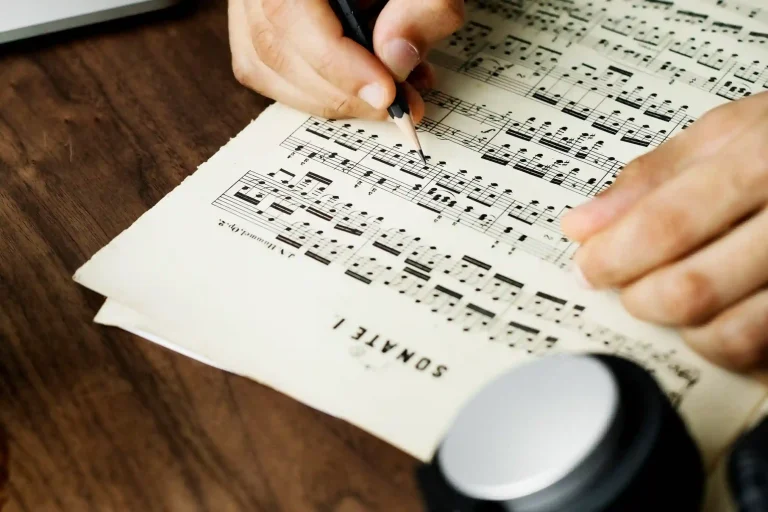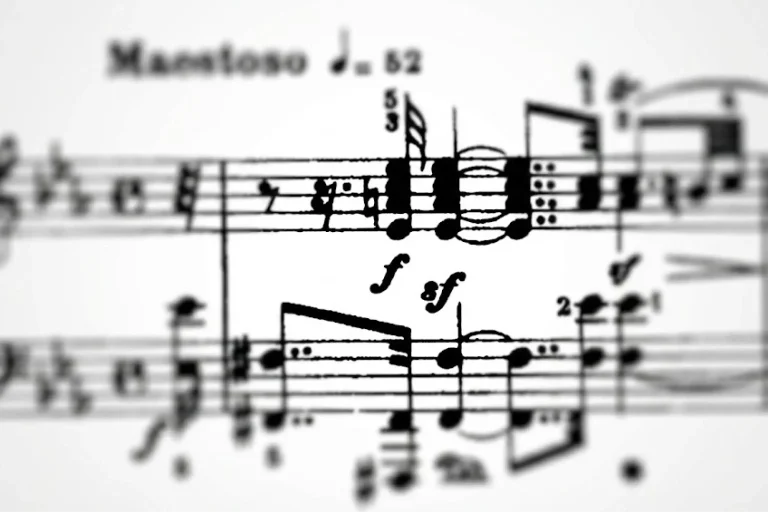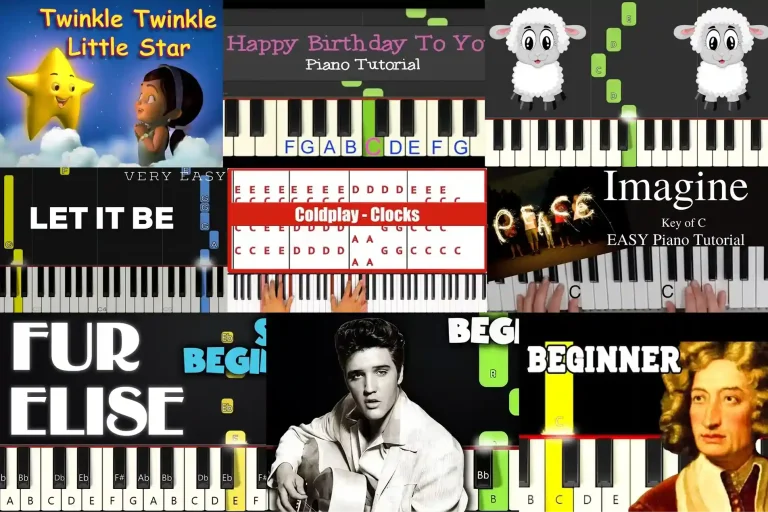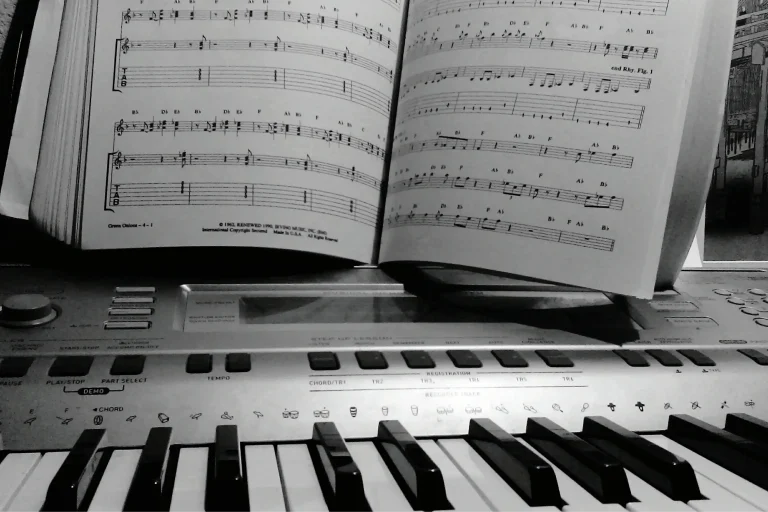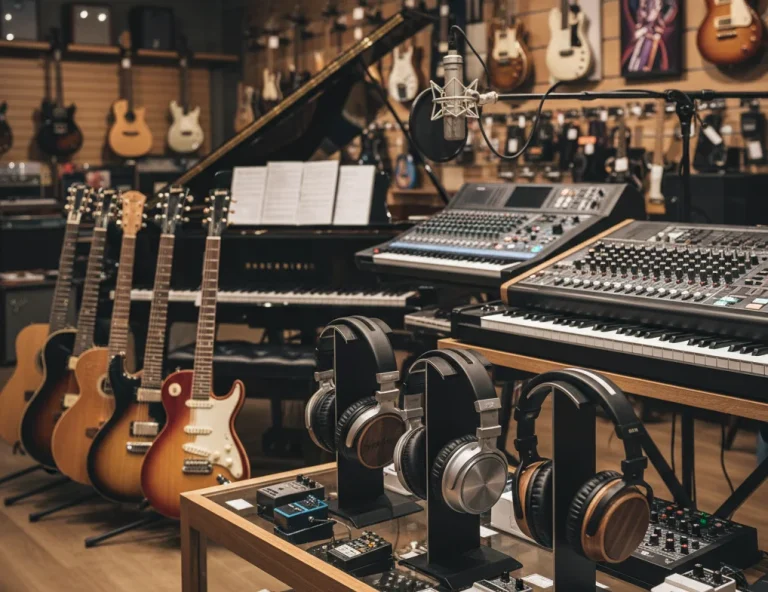All Topics
- Alchemizing Music Concepts for Students
- Artist Spotlight
- artium gift card
- Artium Maestros
- Artium News
- buying guide
- Carnatic Music
- Devotional Music
- Editorials by Ananth Vaidyanathan
- Film Music
- Guitar
- Hindustani Classical Music
- Indian Classical Music
- Indian Folk Music
- Insights
- Instruments
- Karaoke Singing
- Keyboard
- Kids Music
- maestros
- Music Education
- Music for Kids
- Music Industry
- Music Instruments
- Music Legends
- Music Theory
- Music Therapy
- Piano
- piano guide
- Success Stories
- Tamil Film Music
- Telugu Film Music
- Time Theory
- Tools
- Uncategorized
- Vocal Singing
- Vocals
- western classical music
- western music
- Western vocal music
How to Choose the Best Piano for Beginners?
How to Choose the Best Piano for Beginners?

Table of Contents
Your first piano matters; choosing the right one is always a big deal. It can either make you a fan or leave you with an unwanted experience in your piano learning journey.
So, if you are an aspiring pianist or a parent looking to support your child’s piano learning, picking the best piano for beginners is important. It sets the stage for a successful and enjoyable piano learning experience.
We often meet excited students overwhelmed by the different types of piano choices – digital keyboards, upright pianos, grand pianos and more. With options at your disposal, it is obvious to feel overwhelmed when deciding which instruments suit you best. Yet this decision is crucial: a good starter piano will inspire you to practice and progress, while the wrong one will lead to frustration.
So, what’s the big deal with the first piano anyway?
Just imagine, you are locked in on learning, and your instrument won’t stay in tune or sound dull. Not motivating, right? A poor-quality piano can discourage you from playing simply because it is not inspiring. On the other hand, the best piano with a pleasing tone and responsive touch can keep a learner engaged for years.
This blog will help you find the best keyboard instrument for beginners. It includes top features to look for in a beginner-friendly instrument, compares the best piano types for beginners (and a table!), and provides suggestions for budget-friendly picks and avoiding common mistakes when buying. Here, we will also share tips on the right way to learn piano. By the end of this, you will be better equipped to start your piano journey.
Top 5 Features to Look for in a Piano for Beginners
While searching for a piano for beginners, watch for its features that make learning comfortable and fun. Here are some of the features to consider –
- Weighted, Touch-Sensitive Keys
Weighted and touch-sensitive keys are ideal for beginners. Why? Because the “Feel Matters”. The keys should respond to your touch, whether you play softly or harder. These weighted keys help develop proper finger strength and technique from day one.
So, avoid cheap, unweighted keyboards (often springy keys) and go for touch-sensitive keys. Full-size, weighted keys make a massive difference in how enjoyable and realistic your practice feels. - 88 Keys (or close to it)
If you or your child is a committed learner, a standard 88-key piano keyboard may be the best for beginners. It will have a full range of keys, and you won’t even outgrow it. Starting with 88 keys allows you to play various music without falling short of notes.
Smaller keyboards (like those with 44 or 49 keys) might initially be OK for little kids learning piano, but a committed learner will need more range. If you opt for a shorter keyboard initially, plan to upgrade later. Generally, the best piano for beginners will provide enough keys to grow into as skills improve. - Good Sound Quality
If piano keys are important, so is the sound that they produce. Ideally, a beginner piano should have a pleasant, realistic tone that you and everyone will enjoy listening. Ensure that you check the sound samples and speaker quality.
High polyphony (the number of notes that can ring at once) is a plus on digital keyboards – at least 64-note polyphony is recommended so your music doesn’t cut out unexpectedly. You don’t need top-of-the-line concert sound, but the tone should be clear and inspiring.
A good piano for beginners will sound beautiful and encourage you (or your child) to keep practicing. After all, playing a chord that rings out nicely is much more satisfying than one that sounds like a toy buzzer! - Sturdy Build and Reliable Brand
Your piano must be sturdy and durable enough to be used around the home with kids or to move around. So, ensure you buy the piano from a reputable manufacturer like Yamaha, Casio, Roland, etc. These brands have been around for a while and are known to withstand years of practice.
If buying an acoustic piano, ensure it is in good condition (for functioning of used uprights, tuning pins, strings, and keys are all in working order). If going for digital, ensure keys, buttons, and pedals feel sturdy. The best piano should be able to handle enthusiastic practice sessions and still play perfectly in tune after months and years. - Added Features
Everyone likes extra features because they make life easier. For example, a digital piano can have helpful features such as an in-built metronome (to help keep time), headphone jacks (for quiet practice), and demo songs or lesson modes. Some digital models connect to apps or devices via USB/MIDI, which can be great for interactive learning or recording your practice.
Pedals are also essential – at least a sustain pedal for holding notes, as it’s used in many songs (most digital pianos let you plug one in if it’s not built-in). Consider if a practice pedal or muffler is available (on some uprights) to play quietly for acoustic pianos. While these features aren’t make-or-break, they do enhance the learning experience.
For example, a beginner who can plug in headphones might practice more because they won’t worry about disturbing anyone. Likewise, a built-in metronome helps develop rhythm from the start.
To sum it up, the best piano for beginners is the one that feels right, sounds good, and has all the features that enhance the learning experience. Don’t fret about hearing all these details, just remember that as long as you have weighted, full-size keys and a pleasing tone, you are good to go.
Now, let’s examine the different pianos available and which is best for you.
Best Piano Types for Beginners
As a beginner, you can choose a piano from acoustic uprights, grand pianos, and digital pianos/keyboards. Each has pros and cons, depending on your goals, space, and budget. So, let us break them down and make a quick comparison of all three pianos for beginners –

Every type of piano has advantages. But for a beginner, ideally, a digital piano or an electronic keyboard is recommended, as they are affordable and convenient. These instruments don’t need constant tuning and sound remarkably good.
The biggest USP is that they let you practice with headphones, which suits those who practice late at night or live in apartments. However, an acoustic upright piano has its appeal: the resonance and feel of a real acoustic instrument can be deeply satisfying, and an upright can last decades with proper care.
Uprights are often recommended if you want an authentic piano experience without the grandeur (and expense) of a grand piano. Grand pianos, while wonderful, are rarely a beginner’s first piano due to their cost and space requirements, though if you have access to one, you’ll undoubtedly enjoy a rich sound and responsive touch.
To better understand this topic, check out our detailed guide, “Types of Pianos: A Beginner’s Guide to Upright, Grand and Digital Pianos.”. This article explores what sets each piano apart and can help you make an informed decision. So, it does not matter if you opt for a digital keyboard or an acoustic piano, just remember that the best choice is the one that fits your lifestyle and encourages you to play.
Budget-Friendly Picks
Beginner pianos are not expensive. There are plenty of affordable and high-quality options. Here are some budget-friendly picks for the best piano for beginners – instruments that offer value and performance at a reasonable price (And yes, you can find many of these on popular sites like Amazon or your local music store!) If you are still puzzled about how to find good piano, check the following list:
| Keyboard Model Number | Price |
|---|---|
| Casio CT x 700 | Rs. 13,295/- |
| Yamaha PSR-I300 (Basic) | Rs. 16,900/- |
| Roland E-X30 | Rs. 25,014/- |
| Yamaha PSR-I500 | Rs. 23,298/- |
| Roland XPS-30 | Rs. 73,874/- |
| Korg EK-50 | Rs. 31,900/- |
| Roland GO:Keys 3 IN | Rs. 34, 675 |
| Korg PA300 | Rs. 68,100/- |
Tip: Stick with known brands and read reviews when shopping for the best piano on a budget. You’ll find many bundle deals online, including a stand, a bench, and headphones, which can save you money.
Also, consider the used piano market: sometimes you can find a used Yamaha or Kawai upright piano locally for a fraction of the cost, which could be a gem if it’s in good condition. Be cautious and have a piano technician or teacher check a used acoustic piano before buying. Whether new or used, there are pianos for every budget that can serve a beginner well.
5 Common Mistakes to Avoid
Here are some of the common mistakes many well-intentioned beginners ( or parents) make when buying a piano –
- Going Too Cheap (Buying a “Toy” Keyboard)
We understand the urge not to spend a lot initially, but be careful not to buy cheap keyboards sold as “beginner pianos.” The keyboard you buy should not be narrow, have unweighted keys, or touch-insensitive keys; if it is, it is more of a toy than a real instrument.
To develop proper finger technique, dynamic control, and good sound, aim for the best quality your budget allows. A basic digital piano is far better than a cheap plastic toy keyboard. - Not Considering Space and Home Environment
A piano will occupy space. Bringing a grand piano or even an upright to a small apartment will be a mistake. Likewise, you must be wary of the noise – an acoustic piano in a closed quarter can get loud. A digital piano with headphones might be the best piano for beginners at home.
Remember to plan for the logistics: Acoustic pianos are heavy and often need professional movers. Make sure you have a plan (and budget) for delivery. In short, match the piano to your living situation. - Ignoring Maintenance and Hidden Costs
Many first-timers do not realise that acoustic pianos need upkeep. From tuning and relocation to additional accessories like a bench, a stand (for keyboards), a dust cover, etc., everything requires maintenance that a first-time buyer may not know. If you’re not ready, a digital piano (which needs virtually no maintenance) might be a better choice. - Skipping Research or Expert Advice
Doing proper research before investing your money is of the utmost importance. It pays to research, read reviews, ask other musicians, and test the piano in person. Ask more questions, seek teacher advice, or consult a knowledgeable friend before buying a piano. They might point out issues you hadn’t considered and steer you toward a better choice. - Buying an Expensive Piano When You Don’t Need
On the other hand, some beginners spend money on high-end pianos they don’t need. There’s nothing wrong with investing in a grand piano if you have the means – just know that a beginner can learn just as well on a moderately priced instrument. The smartest way to do this would be to start on an affordable, simpler model and upgrade after a few years of lessons.
It takes time to develop your preferences; the piano you love in three years might differ from what you think you need now. So, avoid the mistake of overspending before you’ve even learned the basics. You can always upgrade later once you know your style and commitment level.
By avoiding these mistakes, you’ll set yourself up for a smoother, more rewarding purchase. Remember, every pianist was a beginner once. Even if you don’t get everything perfect in your decision, any sincere effort to find a good instrument will pay off in the long run.
How to Learn Piano the Right Way?
Now that we have covered the basics of finding the right piano, how do you ensure you or your child learns it correctly? Here are some tips to kickstart your musical journey on the right note (pun intended):
- Get the Basics Right
Building a strong foundation is paramount to learning piano for beginners. Begin with basic exercises like finger positioning, hand posture, and simple scales or melodies. Instead of jumping to play a complex song in one day, take up a structured lesson plan.
However you choose to learn, make sure there’s a clear progression. Think of it like building a house: you need a solid base before you decorate the rooms. Focus on fundamental skills early, and you’ll thank yourself later. - Quality over Quantity
Always aim to practice daily and consistently. Effective 15-20 minutes of daily practice is better than sporadic, long ones. Consistency helps you retain what you learn and build muscle memory.
Quality practice means you pay with attention – slow down for complex parts, use a metronome to keep steady timing, and listen to your dynamics. Remember, even the best piano for beginners won’t play itself; your regular effort makes the difference! - Take Professional Guidance
While self-learning is possible (especially with the plethora of YouTube tutorials and apps), nothing beats personalized feedback from a good teacher. A teacher will ensure you’re using the correct technique, which can prevent bad habits like poor posture or wrong fingerings.
They’ll also keep you motivated and accountable. If in-person lessons are difficult to attend, live online lessons are a fantastic alternative. An expert to correct your hand position or answer questions can accelerate your progress more than expected. Plus, they can tailor lessons to your musical interests – whether you love classical pieces or Bollywood songs, a good teacher will incorporate that to keep learning fun. - Mix Fun with Fundamentals
While fundamentals are essential, ensure you learn songs you love too! Beginners should balance technical work (like drills for finger strength or sight-reading practice) with actual music pieces that excite them.
If you’re a parent, find out what songs your child likes – simple nursery rhymes, Disney tunes, or popular hits have beginner arrangements that can be learned early on. Enjoying the music you play is crucial. It keeps your enthusiasm high. You can also use apps and games to reinforce skills (there are ear-training apps, note-reading games, etc.).
Do not rely solely on games—use them as supplements. The main goal is to keep the learning process engaging. You’ll naturally stick with it and improve faster when you enjoy playing. - Patience and Progress
Patience is the key to learning. Because some days you will feel great about your playing, and other days you’ll hit a wall with a tough piece. Don’t be hard on yourself (or your child) if it takes time.
Set small, achievable goals and acknowledge them when you achieve them. The goal can be anything, from learning a new scale to memorizing a piece to playing with both hands; it does not matter.
These little wins build confidence. Remember that every expert pianist was once a beginner who made mistakes; persistence and practice got them to where they are. So keep a positive mindset.
Final Thoughts
By now, you should have learned how to find the best piano for beginners, adults, and kids that fits your needs. It should feel satisfying to play and fuel your musical enthusiasm. Also important is understanding how to approach learning to build skills and confidence steadily. Remember, every musician starts from somewhere; the key is to keep practicing and keep the spark of excitement alive.
Choose a piano that makes you eager to practice, avoid the common pitfalls, and embrace learning with curiosity and patience. And whenever you need a helping hand or inspiration, Artium Academy is here for you. We’re passionate about empowering beginners, guiding you on what piano to buy, or teaching you how to play it step by step with joy and confidence.
At Artium Academy, you’ll find a community of expert instructors and fellow learners who understand the challenges and triumphs of starting piano. Our online platform offers convenience and personalized attention, so you can learn from the comfort of home while getting feedback tailored just to you. Anyone can learn to play and love the piano with the right piano and guidance. So, here’s to you and your musical adventure ahead! Your first piano is ready and waiting – and when you’re prepared to learn, Artium Academy is the ideal place to start your piano journey online.
Happy playing!
FAQs on How to Pick Best Piano for Beginners
A digital piano is the ideal starting point for learning piano for beginners. It’s budget-friendly, requires no tuning, and has useful features like volume control, headphone support, and built-in metronomes. Weighted keys and touch sensitivity on better models also simulate the feel of an acoustic piano, making it a strong first choice.
You don’t need to spend a fortune. Quality beginner pianos start around ₹20,000–₹35,000 (or $250–$400 internationally). Focus on models with weighted keys, good sound quality, and reliability. You can consider upgrading to a higher-end digital or acoustic model as your skills grow.
Not necessarily. A 61-key or 76-key piano is sufficient for absolute beginners. However, if you plan to take formal lessons or pursue long-term learning (like Artium or Trinity, or ABRSM certifications), an 88-key keyboard with weighted keys is recommended for proper technique development.
Buying second-hand can save money, but it comes with risks. If you’re considering a used acoustic piano, ensure it has been well-maintained and tuned. For digital pianos, test all keys, connectivity, and sound quality. If unsure, consult your piano teacher or a music store before buying.
Absolutely! Many piano beginners now choose from one of the best keyboard instruments for beginners to learn piano online, thanks to live 1:1 lessons, structured curricula, and expert guidance. Platforms like Artium Academy offer personalized training from experienced mentors, making keyboard piano online learning as effective as in-person sessions, with added flexibility.
A good beginner piano for kids should be easy to use, durable, and designed to support correct technique development. Digital pianos with 61 to 76 keys, touch-sensitive, and semi-weighted keys are ideal starting points for young learners. These features help children build finger strength and proper hand posture while keeping the learning experience fun and frustration-free.
Look for brands like Yamaha, Casio, or Roland that offer beginner-friendly keyboards with built-in lessons, fun sounds, and headphone support. These features encourage daily practice without disturbing others. When choosing a piano for children, consider the height-adjustable stands, easy-to-read displays, and compact design that fit comfortably in your home. As their interest and skills grow, you can upgrade to an 88-key digital piano that offers a full range of expression.

